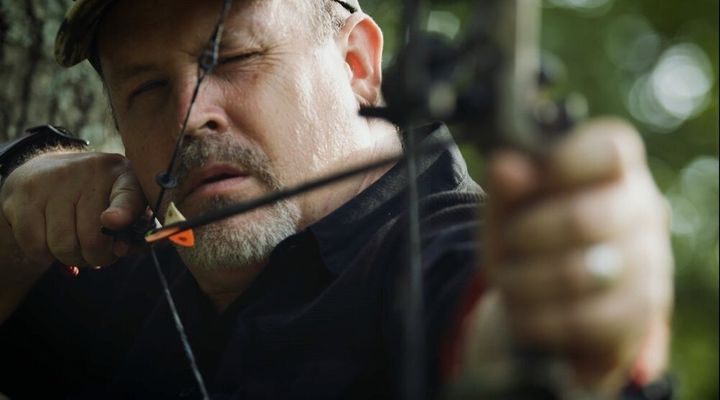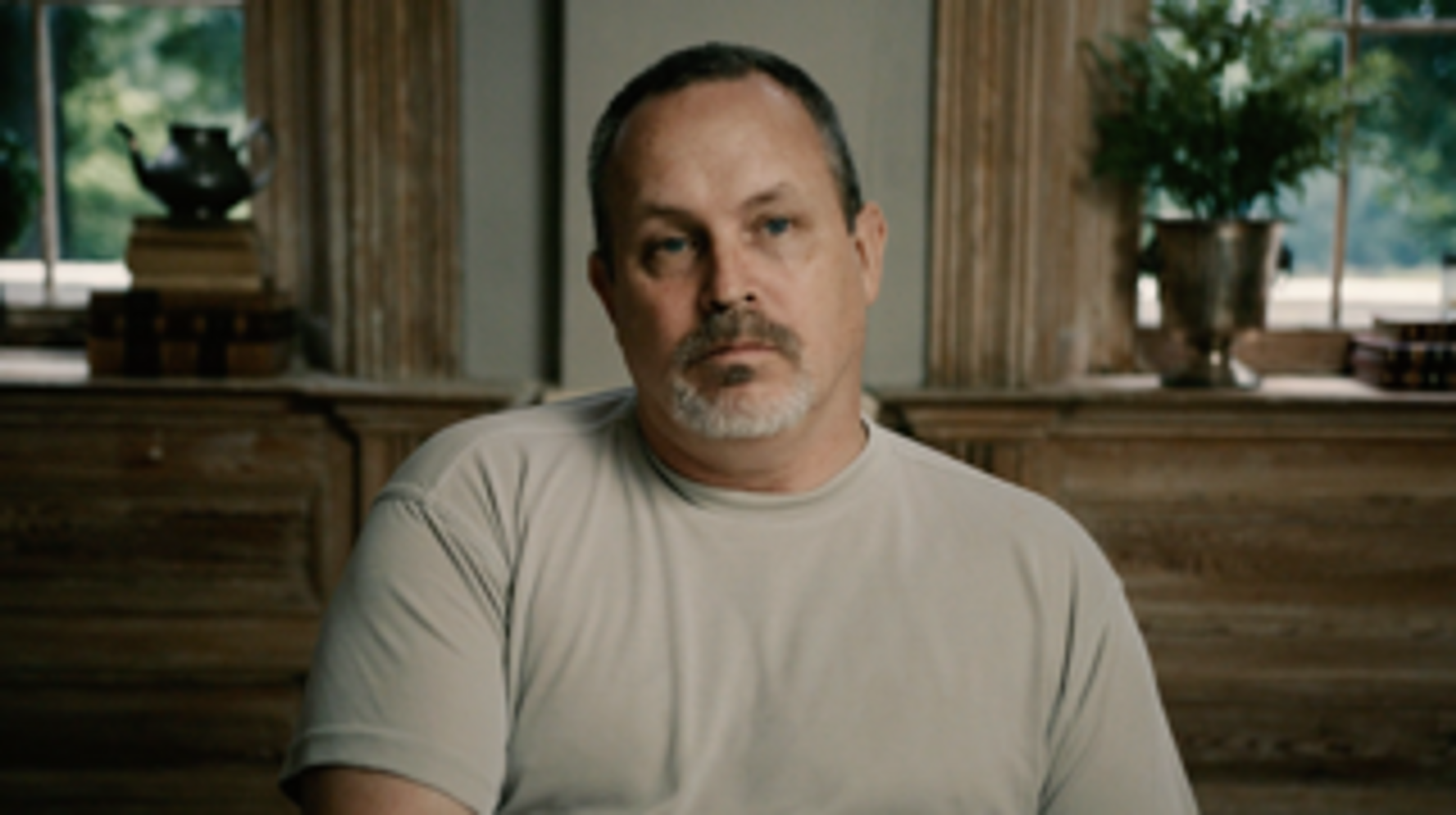[ad_1]
On Nov. 10, 1982, James “TJ” Stevens entered Lake Braddock Secondary School in Fairfax County, Virginia, with a high-powered hunting rifle. The then-18-year-old had one goal in mind: to shoot people inside the school and then shoot himself.
No one died that day, but Stevens did hold 10 people hostage inside the school for nearly 21 hours. After serving two and a half years of a four-and-a-half-year sentence, Stevens went on to join the workforce, get married and have children. His story is told in “The Rage of Evil: Thoughts From a Former School Shooter,” a new RYOT/HuffPost short documentary, which can be seen in its entirety above.
Directed by Carolyn McCulley, the film was a Jury Award winner at the DC Shorts Film Festival this year. “The Rage of Evil” dives into Stevens’ life, as well as what ran through his mind that day. McCulley spoke with us about the making of the short and why she wanted to tell Stevens’ story.
How did you come upon the story of James “TJ” Stevens and Lake Braddock High School?
Actually it was a Washington Post article that ran a year and a half ago. I read that piece and was just fascinated by what they had presented about his experience. It’s not common to be able to talk to a former school shooter. Most of them don’t survive that kind of situation and especially not from the perspective of middle age where I just think you have a new and revised perspective on your life, in your experience at that stage. And so we reached out to TJ and it took him a little bit and then he called me and we talked. He was understandably a little wary. He had given the Post the piece and some of the online comments, which is what happens in this day and age, were ugly. It all worked on a bridge of trust. We offered to get together and just talk without cameras and find out each other’s stories and understand how the process would work, and that’s how it began.
What was that filmmaking process like?
Well, we filmed with him periodically over several months from June until October 2018. During that time I applied to and was accepted to the Points North Institute, which is an artist development program from the Camden International Film Festival. And they have a short form editing residency. So it was a real honor to be one of four filmmakers selected for that. That’s where you have a chance to show your work in progress.

You’re credited as the producer, editor and director. What was it like for you to kind of take on all those roles?
In independent film, you’ve got to be scrappy. There are very few filmmakers who are handed money to start with an idea. You’ve got to prove your idea. And so you’ve got to be able to wear a lot of hats. But the bonus of that is that you have a very small crew in a very intimate set. You aren’t as intimidating to your subjects, especially with difficult topics like this.
Did you ever have any concerns about drawing attention to a school shooter?
That is a really good question to ask and it was a conversation we had a lot. I think one thing that is interesting about TJ’s experience is the fact that he committed a crime and it definitely was a crime where nobody was hurt. The adults who were hostages some of them came to be character witnesses at his sentencing. It had a completely different impact say, like, post-Columbine. What fascinated me about him as a subject is that he committed a crime. He paid his time. He went on to become a productive member of society. But the concept of being a school shooter, the shame of that increased with crimes that were done by other people and were greater massacres and greater loss of life. And so it was interesting to me how he hid because of that shame for so many decades, but also I could tell his story because no one lost their lives.
How do you ensure you’re not glorifying this situation or glorifying TJ as a person?
Yes, even TJ was sensitive to that. He wanted to be very clear about owning his own actions and not blaming anyone else. He did put some boundaries around what he was willing to talk about from his childhood. It just came up in the editing residency where people were curious and they wanted to know more about his family background. And I said, “That was the only boundary he drew for me.” He’d intimate that there was abuse and dysfunction, but his point to me was, “There are plenty of children who come from homes like mine and they don’t show up to school with a gun. So I’m not going to do anything else except own that I did that.” And it is a factor. And in fact, in all of the research that I have done, coming from an abusive background is one of the greatest commonalities among shooters. That, and being male. But he didn’t want to highlight that. He didn’t want to blame other people. And I think because of that clarity, it made it easier for me to tell the story.
He wasn’t seeking me out. He wasn’t looking to gain attention for himself at all. So some of the usual red flags that go up when you’re a filmmaker and you just wonder what agendas are going on in the things that you’re working on. They didn’t arise in my time with TJ. And I think genuinely he really is willing to go out there and to be ostracized all over again and to have people associate this crime with him because he’s saying, “There’s an angle that people aren’t considering here and that it’s important.” It’s motivation enough for him to endure this all over again.
What was the decision behind including and showing TJ footage of the Parkland, Florida, school shooter toward the end of the film?
Actually, part of that came out of the editing residency I told you about. Initially, we were more interested in just examining his life. How did things play out? But with nearly everybody who viewed incomplete drafts and in this editing residency, everyone said, “I’m not quite as interested about his life and how things turned out. I’m more interested in his viewpoint and perspective on this crisis that we have.” And unlike the expectation I think many people have today that you make a film for your own agenda or your own viewpoint where you tell a story because that’s what you want to tell. That wasn’t the case with this. I wanted to tell the story because he is a rare individual and I thought he would have something of value to contribute to the conversation.
Lastly, what do you hope the film does or the viewer gets from hearing TJ’s story?
I didn’t develop this as an agenda-driven activist film. It was really more character study. But I do think there is a reality he brings that’s worth considering. And that is: What does it take to have somebody cross the line and enter into these kinds of crimes? TJ felt there was this similarity experiencing an outside force telling him to kill. He could see that in the [Parkland] footage, which he hadn’t seen that Parkland footage until we showed him that day either. But he heard the news reports and how similar it was. And so I would say his goal in wanting to participate is wanting to showcase his experience and then hopefully be able to speak to different youth groups, to different rehab centers, to law enforcement, all of which he’s done and in a small amount to talk about his experience and especially to reach anybody who would be contemplating the same kind of crime to show them that you are being manipulated and you don’t have to choose to be. I think that would be a safe way to summarize his perspective.
This interview has been edited and condensed for clarity.
Calling all HuffPost superfans!
Sign up for membership to become a founding member and help shape HuffPost’s next chapter
[ad_2]
Source link

